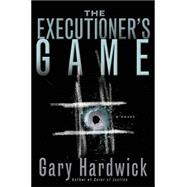
The New copy of this book will include any supplemental materials advertised. Please check the title of the book to determine if it should include any access cards, study guides, lab manuals, CDs, etc.
The Used, Rental and eBook copies of this book are not guaranteed to include any supplemental materials. Typically, only the book itself is included. This is true even if the title states it includes any access cards, study guides, lab manuals, CDs, etc.
It was a bad sun. That's what the locals said. It wasn't customary to think of the sun as something capable of negative energy, but you couldn't convince the dark men of that. Periodically they would glance up at it fearfully while executing their harsh duties.
The men unloaded crates and stuffed boxes from a flatbed truck, carrying the items to transports, three big trucks -- one of which was being worked on by two mechanics. The boxes overflowed with packing materials, making the containers look bloated and sick. As the men traversed back and forth from the truck to the plane, they muttered in their native tongue, looking up at the sun as if it might detach from the heavens and roll over the land like a molten boulder.
The sun seemed to appear closer to the earth than usual. It filled the horizon, lurching above the low, rolling hills and bright green bush like a sniper who'd come too close to his prey.
The hot rays spilled beyond a low brownish green mountain range and into the thick jungle, landing finally on the cracked ground of the road in Laundi, a small village that wasn't even a speck on the map between the Rwandan border and Kisangani in Central Africa.
United States Secretary of Commerce Donald Howard felt a sense of dread as he stood on the side of the road near the beginnings of the bush. But it wasn't the sun that made him nervous.
What did fill the secretary with dread were the sights he'd seen in the last few weeks, the utter ruin and death he'd witnessed in Southern and Central Africa.
The AIDS virus had devastated the continent in the last two decades. Howard had been sent by the president to survey the condition of the area and determine the size of a package of economic aid.
As an African American, Howard had taken on the assignment with pride and determination. He'd hoped that his trip to the motherland would result in a cultural awakening for him, a longlost connection to his past. What he found in Africa was quite different: economic mayhem, corruption, intra-African racism, a crumbling infrastructure, and a dispirited people.
And death.
The epidemic had swept the land like a biblical plague, tearing life from the bosom of civilization. Villages were turned into ghost towns, streets were lined with the sick and dying, and rivers were clogged with corpses whose souls had been ripped from their bodies. It was hell on earth, he thought, devastation like none he'd ever witnessed. And for all his authority, he was powerless to help any of these people. A tiny organism had laid waste an entire civilization, and all he could do was watch.
"We're almost ready, sir," said George Gorman. He was one of Howard's Secret Service agents. "The mechanics have pretty much fixed the engine problem in your transport."
Howard was startled for a moment and then looked directly into the eyes of the man who'd just spoken.
Agent Gorman was a tall, lean man of forty or so. He had bright blue eyes and a jaw that was wider than it should have been. It made his head seem a little too big on his shoulders and gave him a look of menace that had served him well in his profession. Gorman was one of two Secret Service men assigned to Howard. Gorman and his partner in turn led a security team comprised of four soldiers, two marines, and two army officers. He stood next to Howard, waiting for him to respond.
"How much longer?" Howard asked impatiently.
"About a half hour, sir," said Gorman.
"Fine," said Howard. "I just want to get out of here as soon as possible. Go and sit on the mechanics."
Gorman nodded and ran off quickly. Howard took a deep breath, letting the strong odors of the land into his lungs. He looked out at the beauty of Africa and was struck by the irony of the wreckage that lay behind it. It was truly a dark continent, he thought.
He didn't like the thought of going to Rwanda by land, but the plane the army had provided for them had malfunctioned. And now the armored truck was down as well. It seemed fate was conspiring to keep him in this desolate area.
Howard would have a compelling story to tell the president, he thought, and he hoped the American government would not hesitate to come to the assistance of these afflicted people ...
The Executioner's Game. Copyright © by Gary Hardwick. Reprinted by permission of HarperCollins Publishers, Inc. All rights reserved. Available now wherever books are sold.
Excerpted from The Executioner's Game by Gary Hardwick
All rights reserved by the original copyright owners. Excerpts are provided for display purposes only and may not be reproduced, reprinted or distributed without the written permission of the publisher.